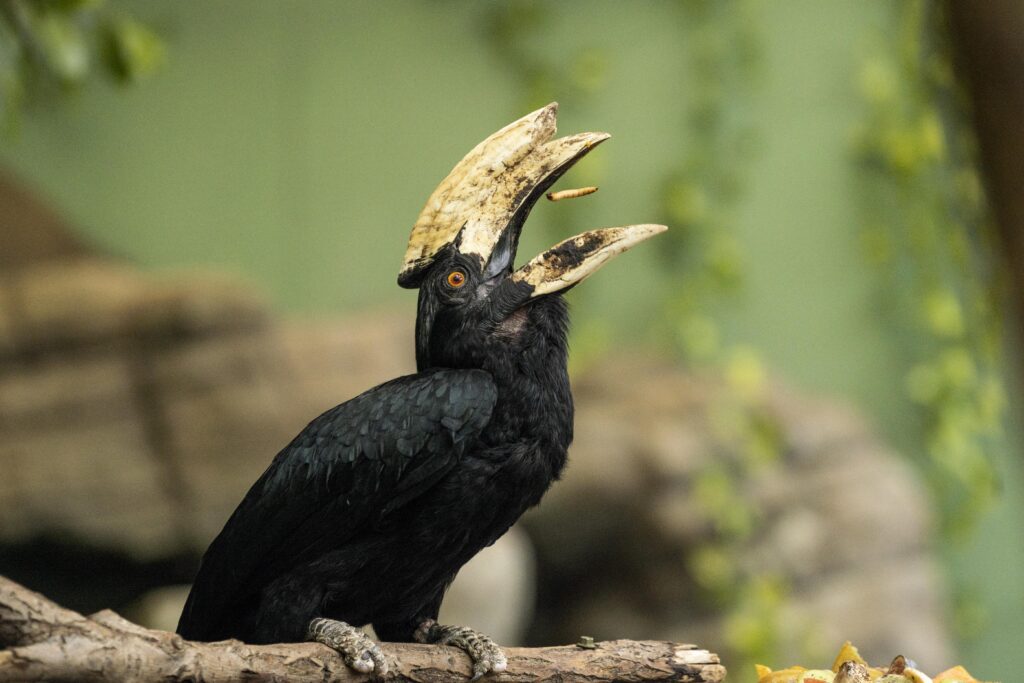Key Facts

This is always more prominent in the male of the species. Hornbills are the only birds known with their first two cervical vertebrae fused, which most likely helps support their top-heavy beaks.
Darwin is a devoted husband to our female Mulu, constantly showering her with attention and bringing her items of food, regardless of whether she would like them or not. He can often be seen being fed by keepers, catching items of food in mid air. If not he can be found hopping round the floor of his aviary collecting mud or chasing bugs. Darwin is our male hornbill so has a large yellow beak with a hollow casque on top. Favourite foods include: Blueberries, worms and mice.
Mulu is the shyer of our two individuals but is slowly gaining confidence with her keepers. She can often be seen rejecting Darwins offerings of food (as he always brings his favourite snacks and not hers). They have settled well as a pair and often spend time together in the enclosure. Mulu is our female hornbill so is the individual with the smaller black beak. Favourite food Grapes and tomatoes.
Back in April 2022, Darwin and Mulu were announced to be the first pair in Europe to hatch and rear a healthy chick during a two-year period named Biru. The Hornbill pair have defied all previous known knowledge about the species, having successfully bred and hatched a second clutch of eggs in the same year producing a second chick called Kedua. In the early hours on the 23rd June 2022, Mulu the female black hornbill, once again sealed herself into the nest box, merely 12 days after exiting the nest box with her first chick Biru.
Biru and Kedua now live together in a separate aviary to mum and dad to mimic the natural dispersal age and are awaiting for a breeding recommendation of their own to help aid the breeding program for Black hornbills.

Social